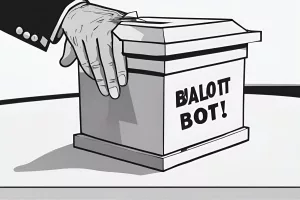South Africa’s democracy is a dance of dedication, with each citizen’s vote playing a crucial role in molding the National Assembly. The Constitution prescribes a proportional representation electoral system, and every five years, citizens stride towards polling stations to participate in the political scene. Timing plays a pivotal role in the democratic ballet, and the Chief Justice oversees the formation of the new Assembly and the election of the President. The new Assembly is thoroughly oriented to ensure MPs are wellprepared for their roles, paving the way for a sturdy, responsive, and representative democracy.
South Africa’s electoral process relies on adherence to rules regarding voter registration posters to maintain fairness and integrity. Violations of these rules, such as leaving political posters displayed after the designated timeframe, undermine the democratic process. Political parties are responsible for the expenses incurred by the City for removing noncompliant posters, and penalties for violating these rules start at R134,10 per poster. Upholding these regulations ensures fair play in political campaigns and upholds the sanctity of the electoral process.
The Electoral Commission of South Africa and the University of Venda will be hosting a twoday international symposium on May 25th and 26th, 2023 at the University of Venda Auditorium in Thohoyandou, Limpopo Province. The symposium aims to gather national and international experts from various academic and electoral democracy fields to discuss and exchange ideas on the crucial theme: The role of the Judiciary in Mediating Electoral Processes and Outcomes in Africa.



